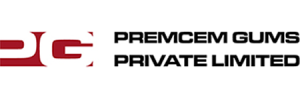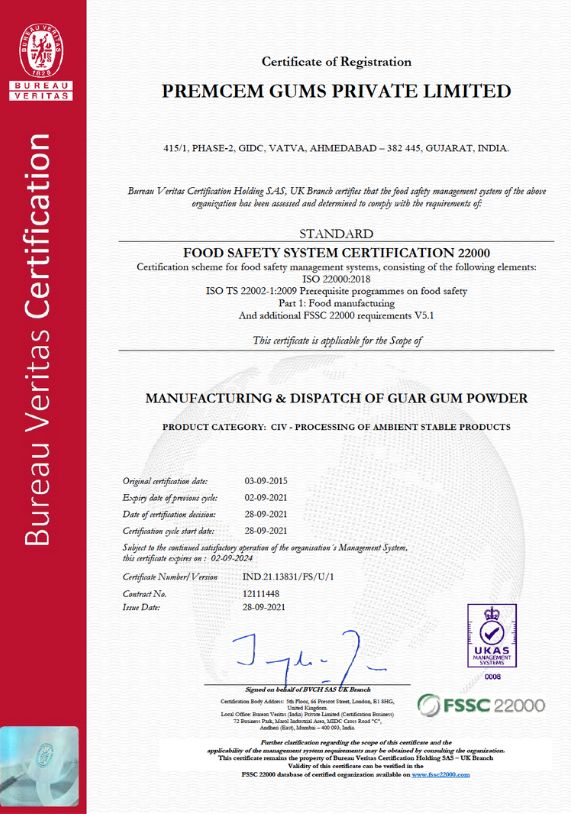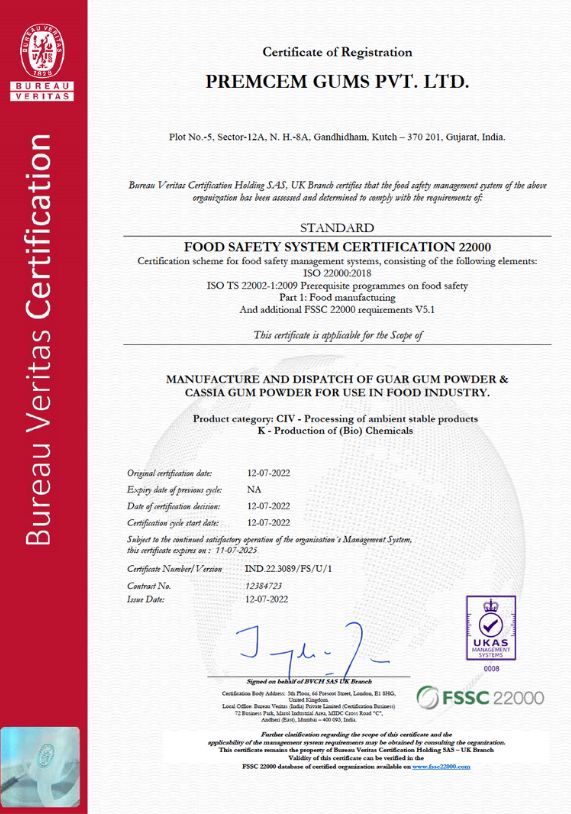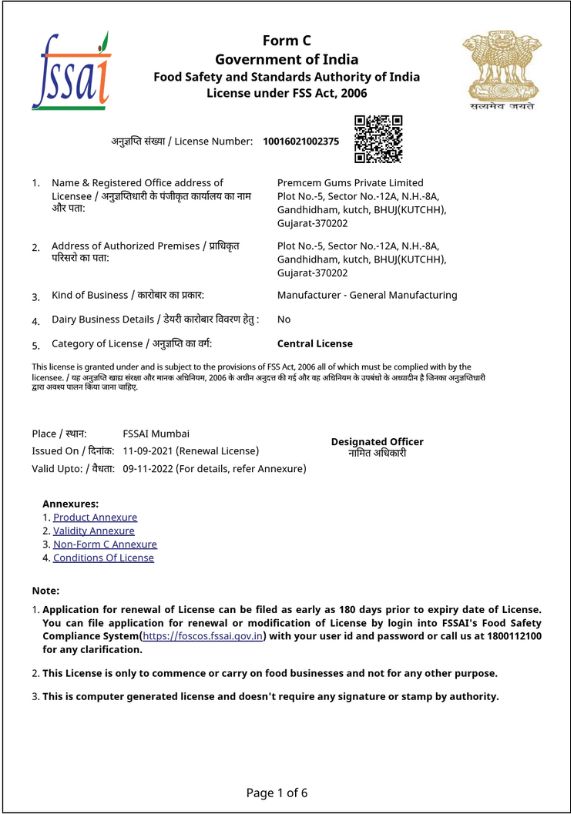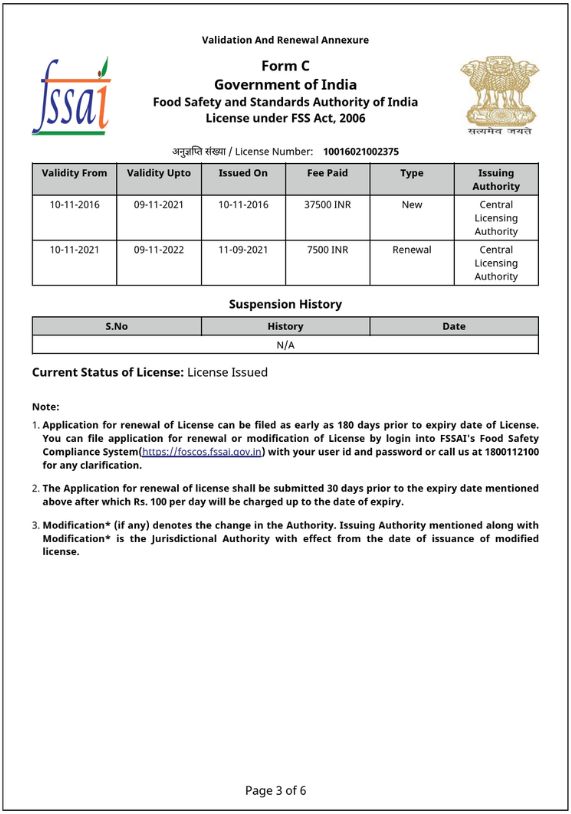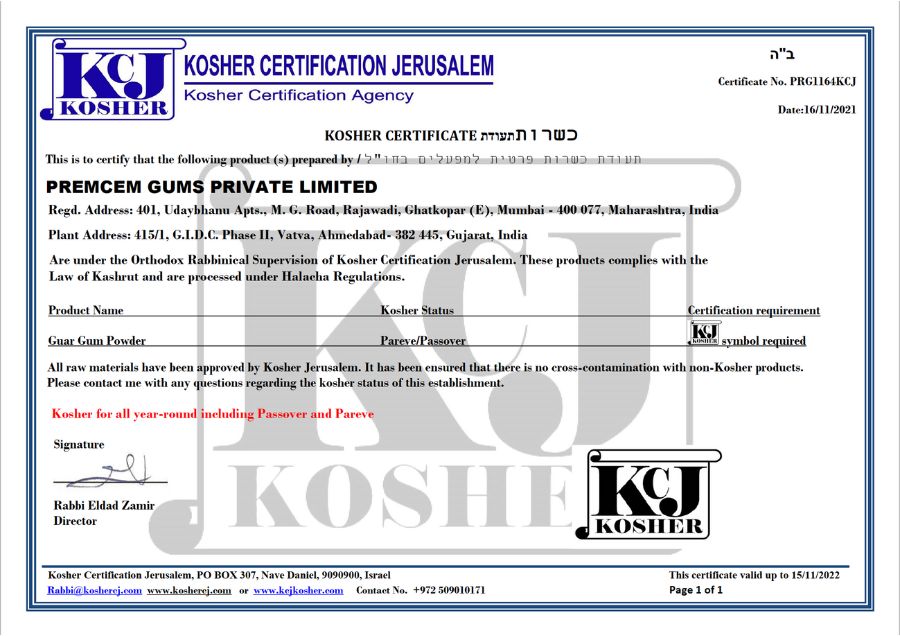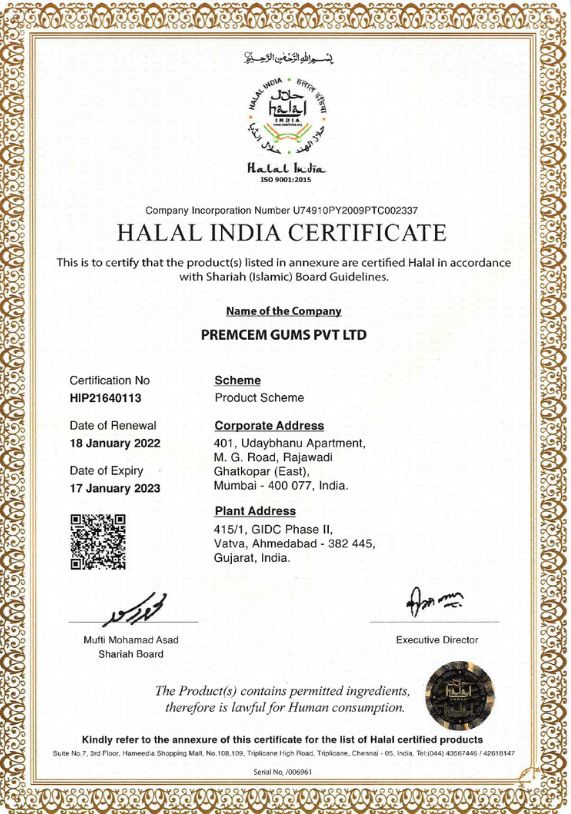Our facilities are certified for FSSC 22000, FSSAI, Kosher and Halal, to consistently deliver high-quality products that meet or exceed customer specifications.
FSSC 22000
The FSSC 22000 Food Safety System Certification provides a framework for effectively managing an organization’s food safety responsibilities. FSSC 22000 is fully recognized by the Global Food Safety Initiative (GFSI) and is based on existing ISO Standards. It demonstrates that a company has a robust Food Safety Management System in place that meets the requirements of its customers and consumers.
Premcem Gums is now part of the 10,000+ organizations over 140 countries that have achieved FSSC 22000 certification.
For details, please visit www.fssc22000.com
FSSAI
We are also certified by the Foods Safety and Standards Authority of India (FSSAI) for the manufacturing of Guar Gum.
The FSSAI has been established under the Food Safety and Standards Act, 2006 which consolidates various acts & orders that have hitherto handled food related issues in various Ministries and Departments.
FSSAI has been created for laying down science based standards for articles of food and to regulate their manufacture, storage, distribution, sale and import to ensure availability of safe and wholesome food for human consumption.
For details, please visit www.fssai.gov.in
Kosher
The Jewish community has always placed great emphasis on dietary self-control. The main principles of Kosher are laid down in the Five Books of Moses and are considered as Divine Will. Rabbis have always stressed their essential role in preserving Jewish life. Just as a healthy diet is good for the body, Kosher is considered good for the soul.
Keeping Kosher is an intrinsic part of the daily life of a Jew. Kosher foods are divided into three categories: meat, dairy and Pareve. The third category, Pareve, comprises foods which are neither meat nor dairy and may therefore be eaten with either. This means that they contain no meat or dairy derivatives, and have not been cooked or mixed with any meat or dairy foods. Pareve foods present fewer kosher complexities than meat or dairy foods.
Halal
Halal is a Quranic term that means ‘permitted’ or ‘lawful’. Halal, when used in relation to food, means permissible for consumption by Muslims based on the Islamic law. It is the responsibility of a Muslim to ensure that any food consumed (or even any businesses performed) in their daily lives is clean, hygienic and not detrimental to either their health or well-being. Halal promotes cleanliness in all aspects of a person and is the new benchmark for quality.
Halal Certification is an assurance of quality products that have met rigorous internationally accepted standards in production and hygiene.
Halal Certification is becoming more relevant in today’s market mainly because people are more aware of the Halal concept. It extends beyond religious matters, to the products or services being deemed safe for consumption and also have health benefits.
For details, please visit www.halalindia.co.in
